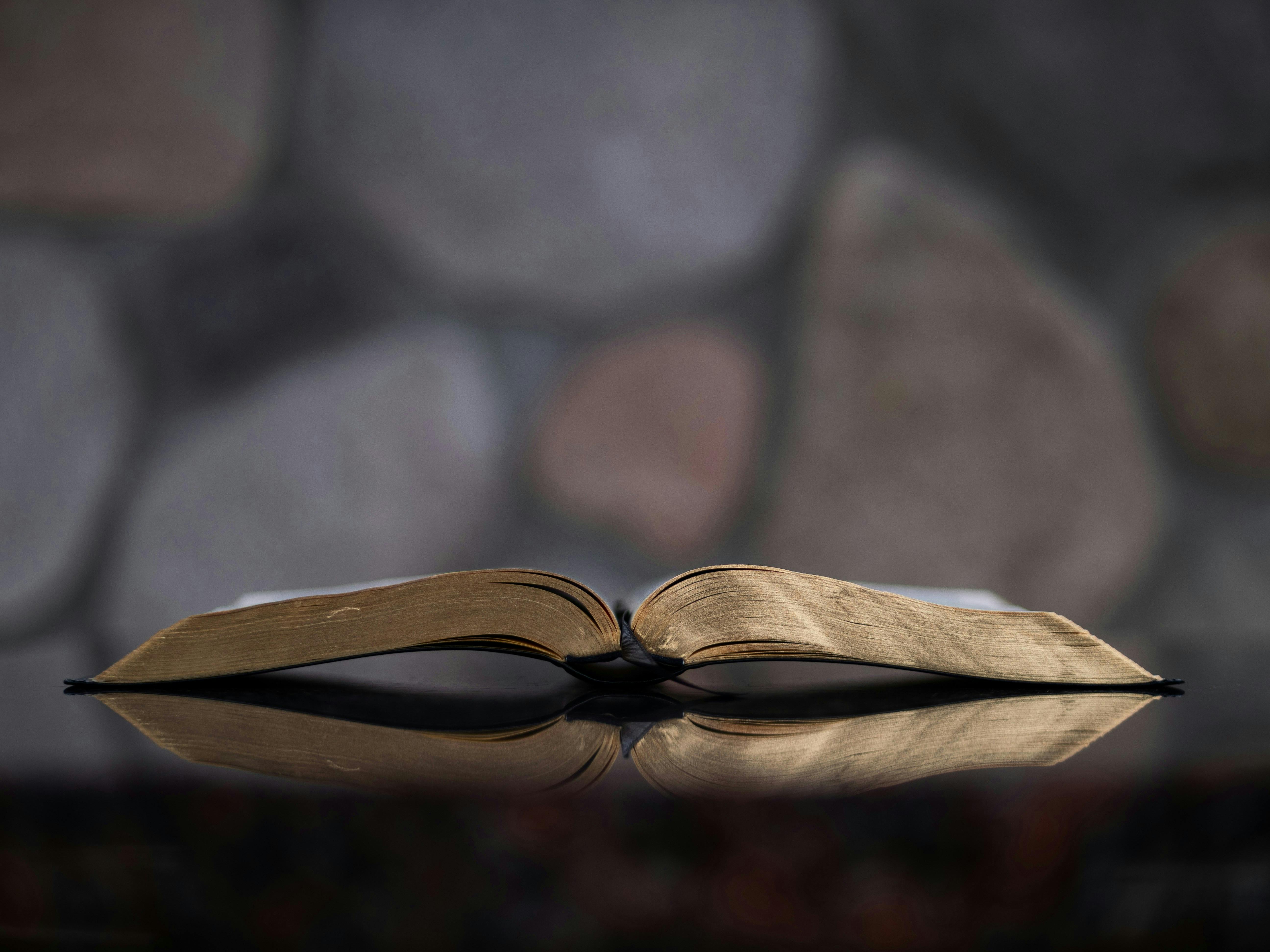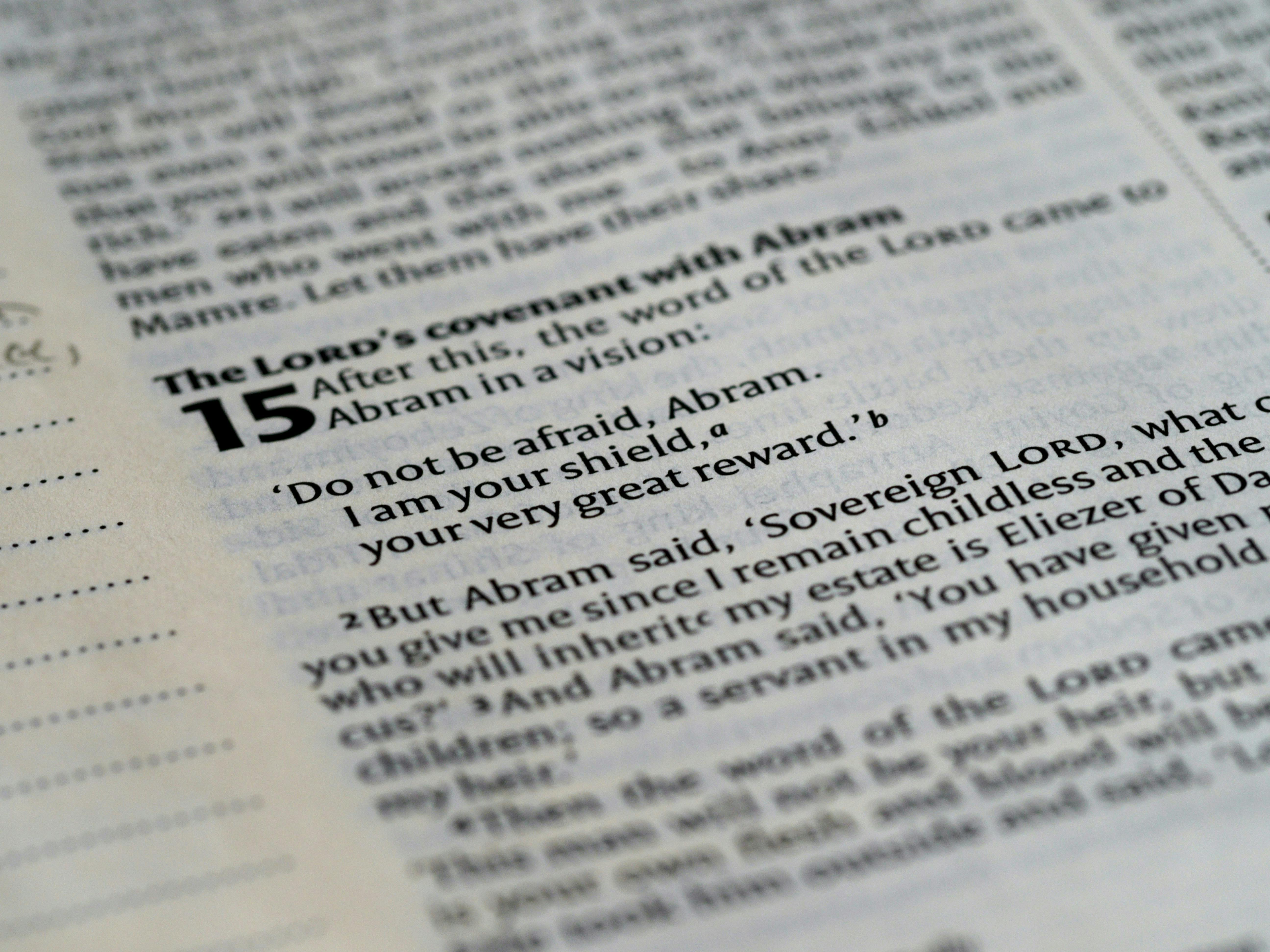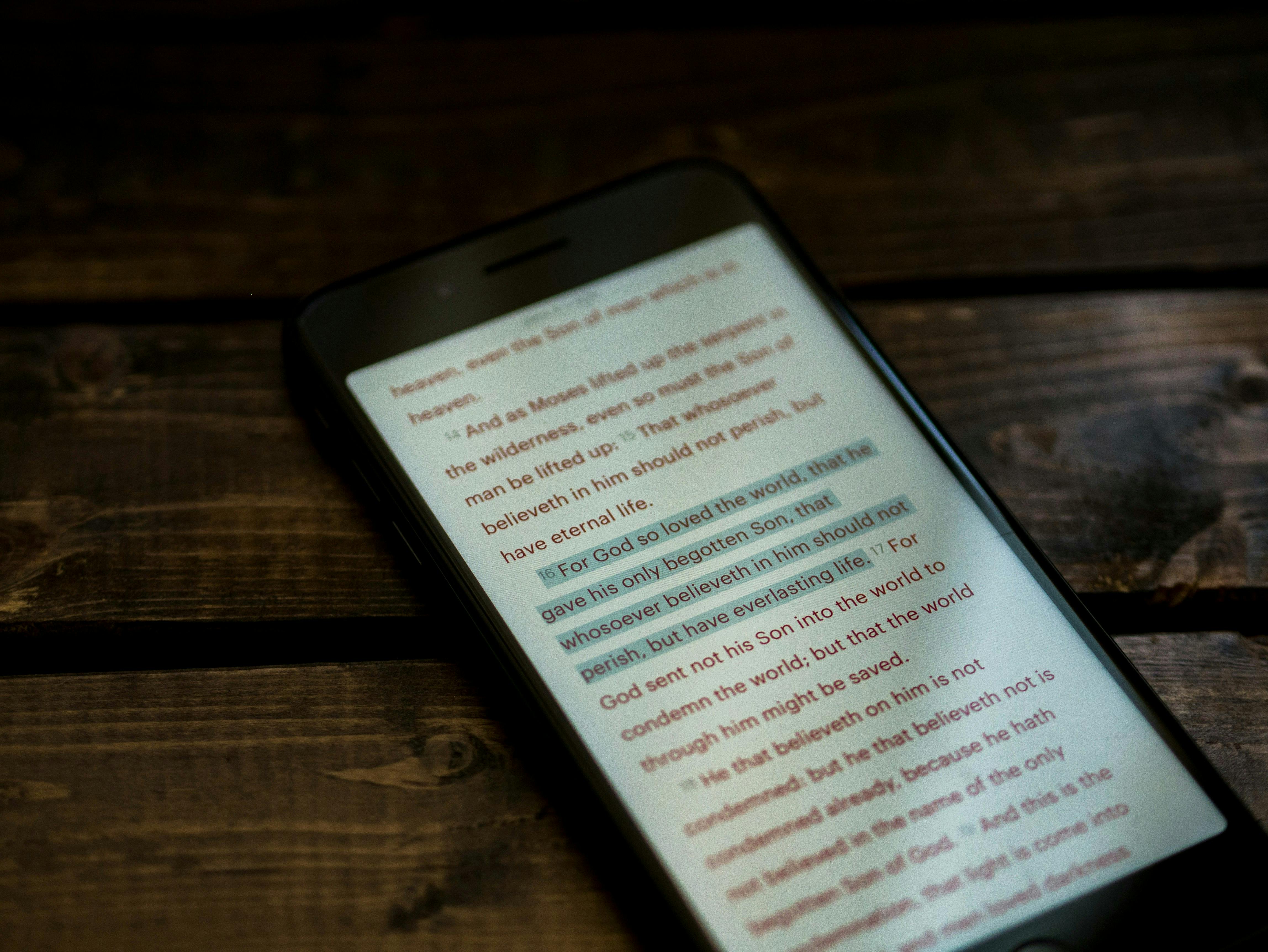The Bible is a big, beautiful, disturbing, encouraging, confusing, and sometimes hard-to-read book.
While it looks like other books, it doesn’t exactly work like them. It’s ancient, not exactly in chronological order, and contains at least nine different literary styles. Maybe hardest of all, some people believe it’s the actual word of God.
I happen to be one of those people, and I’ll also be the first to say the Bible ain’t easy. But like working out, sticking to a budget, or forgiving a friend, the difficult things pay the highest dividends.
You’ve got a copy of the old book (or one of many free apps) and the desire to get into it…but you’re stuck on “What book of the Bible should I read?” I get it. I think we can find a solution—with a little help from Johnny Cash.
The country music superstar and everyone’s favorite rebel in black released a whopping 67 studio albums before his death. With a career that lasted 49 years (1954-2023), my simple math says that’s a new album (on average) every nine months. I’m already tired just thinking about it.

If you’d never heard a Cash album, it would be pretty overwhelming trying to figure out where to begin. But a little guidance from a Cash superfan might be just what you need.
Like J.C.’s back catalog, the other J.C. (you know, Jesus) has a pretty extensive catalog, too. The Bible has 66 different books, as varied as Johnny’s albums. I’ve been immersed in that book, reading it (almost) daily for the last 25 years. If you’re a first-time reader or a first-time-in-a-long-time reader, I’ve got some ideas that might be able to help you find where to start reading the Bible for yourself, with a bit of help from the Man in Black.
Where to Start Reading The Bible
In my humble opinion, Genesis, Proverbs, one of the gospels, and James are where to start reading the Bible. Those aren’t just chosen at random. Stick with me; there’s a method to the madness.
If you wanted to get into Cash’s extensive catalog, I’d suggest one of four places: his debut, a greatest-hits collection, a career-defining release like Live at Folsom Prison, or his storied American Recordings with producer Rick Rubin. As it turns out, that just happens to be where we’re going in the Bible, too.
The Bible’s big debut (Genesis), its greatest hits of wisdom (Proverbs), its history-defining stories of Jesus (the four gospels), and its back-to-basics letter (James) are all great starting points for exploring Scripture.
In my opinion, each one is as good a place as the others to begin. So choose the one that interests you most, and then try another one on for size when you finish. Then, keep going. You can do this!
1) The Debut—Genesis
Johnny Cash’s first album, With His Hot and Blue Guitar, clocks in at less than 28 minutes (there are single Pink Floyd songs nearly as long as this whole album), but it packs a punch. Every quintessentially Johnny Cash subject is here: love (I Walk the Line), prison (Folsom Prison Blues), Jesus (I Was There When It Happened), and trains (Wreck of the Old ‘97). If you’re going to understand Johnny, you have to know where he started. The same is true for the Bible.

The book of Genesis begins with the creation of a perfect world—and the devastating effects rebellion against God has on it. After pausing to take note of some of humanity’s worst sides (the flood, the Tower of Babel, and the destruction of Sodom and Gomorrah), Genesis starts to trend upwards as God chooses an elderly couple for a special mission. They are to be the patriarchs of a new people, one set aside to be God’s representatives and conduits of blessing to the rest of the world.
Clocking in at 50 chapters, Genesis is one of the longer books of the Bible, but the vast majority of it is narrative. So if you like stories (especially ones with gory details—looking at you true crime podcast fans), you’ll find plenty to keep your attention here.
Genesis is a great place to begin because it reveals the roots of everything that comes after it. The themes here will show up in every other book in the Bible. It’s especially resonant because it shows, from the beginning, that God had a plan—one that involves people as flawed and imperfect as you and me.
If you’re still wondering, “What book of the Bible should I read?” it’s hard to miss by starting at the beginning. If that’s the route you take, this might help unpack some of the larger themes you’ll find there.
2) The Greatest Hits—Proverbs
Johnny Cash’s best-selling record was released a few years after his death. The Legend of Johnny Cash is a career retrospective, collecting 21 of his most famous songs from Cry! Cry! Cry! to Hurt. It’s easy to see why over three million copies of the album were sold in the United States alone—it’s got all the hits and none of the filler.
Johnny doesn’t waste any time. Every song on The Legend comes in under five minutes. They’re short, sweet, and pack a punch—kinda like Proverbs, the Bible’s book of ancient wisdom.

Proverbs was written by Solomon, a king of Israel renowned worldwide for his God-given insight and discernment. Most of Proverbs’ 31 chapters are chock full of fortune-cookie-length blurbs of wisdom. Except that these Proverbs, unlike the ones that come with your Chinese takeout, actually have the power to make your life better. There’s advice for almost everything, including avoiding debt (Proverbs 22:7), making friends (Proverbs 17:17), the power of listening (Proverbs 18:13), developing a work ethic (Proverbs 6:6-8), and even having more sex (Proverbs 5:18-19).
No matter how shiny your life might look to others, there’s a desire deep within all of us to keep leveling up—to get better, be smarter, and go farther. Proverbs can be a great launching pad for reading the Bible because it can help you do each of those things. Plus, it’s punchy, concise, and clear. You won’t have to dig too deep to uncover the meaning of wisdom like “Fools despise instruction” and “A joyful heart is good medicine” (Proverbs 1:7; 17:22).
When you take the risk and do more than just read Proverbs but actually apply it to your life, I believe you’ll uncover the most life-changing revelation of all—that God can be trusted. When you find you can trust Him in the little things, like a blurb from the Bible, it will become easier to trust him in the bigger concepts you’ll find throughout the rest of the big book.
Ready to jump into Proverbs? This recent teaching series might help you get a kick-start.
3) The Quintessential—The Gospels
If I had only one chance to introduce you to a Johnny Cash record, it would be At San Quentin. Recorded on a makeshift stage before a packed house of inmates at a California maximum-security prison, it’s quintessential Cash. He’s electric, defiant, and on top of his game.
The inmates eat it up because Johnny doesn’t treat them like outsiders. He takes their requests, plays defiant songs about prison life, and throws verbal potshots about life behind bars. When Johnny looks out over that crowd, he doesn’t see their mistakes but their potential. Cash made an extraordinary effort to put himself inside their reality, and the inmates responded.

This is reminiscent of how the Bible describes Jesus—God-in-the-flesh who left his place of glory in heaven to dwell among his people (Philippians 2:4-8; John 1:14). He went to the outsider, the lost, the forgotten, placing a value on them that culture never would (Luke 19:10; Matthew 9:35-36). He taught, healed, and eventually died so that the prisoner—metaphorical and literal—could finally be free (Luke 4:17-19).
Jesus IS the story of the Bible. Every other book either looks forward to His life or back at the significance of his teaching, miracles, death, and resurrection. If you could only read one book of the Bible, I think it would have to be one of the Gospels—the four accounts of Jesus’ life.
Why four? Because each one is written from a slightly different angle for a slightly different audience. When taken in tandem, they present the most well-rounded and accurate picture of the Messiah. Any of the four gospels will do the trick, but so you’re not picking blind, here’s a quick overview:
- Matthew, written by a guy who was a disciple of Jesus, pens his account primarily for (and from) a Jewish perspective. He emphasizes the teachings of Jesus, focusing on him as the fulfillment of ancient prophecies in the Old Testament. If you want to see how Jesus fits into the rest of the Bible, especially the portion written before he lived, Matthew is your man.
- Mark, the young gun compared to the other gospel writers, didn’t spend time with Jesus—but he spent time with the guys who did. He collected his account of Jesus’ life from first-hand witnesses. His gospel is the shortest of the lot, and it jumps from crucial scene to crucial scene. If you want to get to the meat as quickly as possible, Mark is your guy.
- Luke was a doctor and a Gentile who put his detail-oriented brain to work crafting an orderly account of Jesus’ life for a non-Jewish audience. Luke is especially interested in how Jesus interacts with the outsider and how he teaches spiritual concepts through parables and made-up stories. Luke’s book is the longest in the entire New Testament—if you only watch the Director’s Cuts of movies, Luke is what you’re looking for.
- John, like Matthew, was one of Jesus’ original 12 disciples. Unlike Matthew, though, he was brought deeply into Christ’s inner circle. John considered himself Jesus’ best friend (no word on if Jesus reciprocated that claim), and he arguably witnessed more miracles, teachings, and spiritual moments than any of Christ’s other followers. Perhaps this is why his account focuses on establishing the divinity of Jesus by paying careful attention to signs, miracles, and what Jesus said about himself—John’s also ready to be your friend if you’re interested in the supernatural.
The gospels are a fantastic place to begin reading the Bible because Jesus’s story, life, and teachings are the point of everything else. It’s why the rest of the Bible exists. When you get Jesus right, the other biblical pieces begin to fall into place.
Still not sure which gospel to pick? Try out this Buzzfeed-style quiz. But proceed with a sense of humor. It’s satire, people. No angry emails, please.
4) The Stripped-Back Finale—James
Near the end of his career, Cash was on the verge of fading into obscurity. The man who once headlined world tours and caused prisons to shake with excitement was spending his twilight years playing to half-packed dinner theaters. That was, until a chance encounter with producer Rick Rubin, who breathed new life into Cash’s career by focusing on the essentials: a guitar, Cash’s baritone-bass vocal, and his favorite songs.

The decade-long collaboration resulted in the American Recordings, six albums that became some of the most beloved of Cash’s storied career. While the rest of the music landscape in the mid-90s and ’00s was focused on young artists, sex appeal, and high production, Rubin stripped everything else away. He zigged when the music industry zagged, and all that was left was pure Cash. It struck a nerve, not least of all because of its grand simplicity. It felt powerful, raw, and authentic. It was unlike anything else around.
That’s exactly what the Bible’s Book of James does. Written by the biological brother of Jesus, who was once a doubter but came to faith in Christ, James reads with the powerful simplicity of a man who has spent his life wrestling with what it means to follow Jesus in a world that does anything but. He picked up loads of wisdom and unloads it in an accessible and endearing way.
The Book of James is a letter written to early followers of Christ and was meant to be passed from city to city. The churches were struggling with questions about what it meant to be committed to their faith under the thumb of broken politics, cultural pressures, and divided families. Sound familiar? (Some things never change.)
James encourages his readers to embody simple yet powerful exhibitions of faithfulness—like controlling your tongue (James 3:3-12), dropping the judgemental attitude (James 4:11-12), and facing difficulties with joy by focusing on the long-term gains (James 1:2-4).
James is a great place to start reading the Bible because it cuts to the chase—this is what it means to live faithfully in a broken world. It is concise (it’s only five chapters), actionable (there is so much to do!), and practical (apply its wisdom and find out for yourself). If you skip reading the instructional manual and go right to learning by experience, you and James will get along just fine.
If you’re ready to jump into James, check out this video (which I had nothing to do with but think is phenomenal) for some helpful context.

Now You Know Where To Start Reading the Bible—Let’s Get To It
That’s it! You’re ready to dust off that ancient book, crack its spine, and get to reading. If you need help on what to do next, check out this quick read by my friend Eric, which has four tips for making the most of your time in Scripture.
And, if you can’t find your copy of the good book, you can always listen to Johnny read it to you. I’m pretty sure that counts.
Want an easy tool to start reading the Bible? Try out the Crossroads Anywhere app, where you can read and learn alongside thousands of others.
Disclaimer: This article is 100% human-generated.
Reflections to share? Got an idea for an article? Email us at articles@crossroads.net










